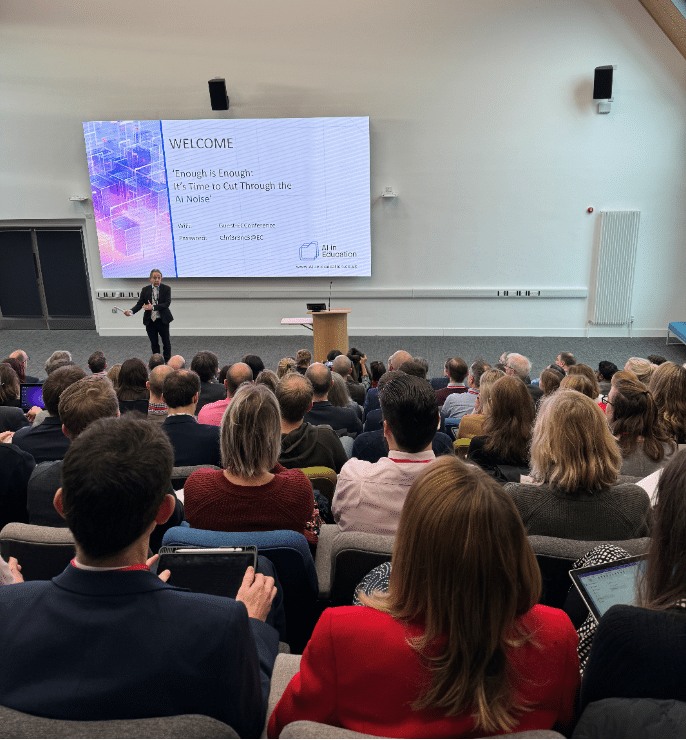Epsom hosted the second in its series of conferences on AI in Education this week. Following the inaugural conference in May, which surveyed the landscape and assessed the potential impact of AI on teaching and learning, this event focused on the practical implementation of AI in the classroom.
The event was curated by AI In Education, the cross-sector body established jointly by Epsom College and the Bourne Education Trust. The body, the first of its kind globally, brings together teachers, examiners, academics, scientists and students from all sectors, educational settings and countries and regions within the UK.
Its aim is to maximise the benefits and minimise the risks of AI, and stay in control of advances in the technology, in the interests of all young people, but particularly the disadvantaged and disenfranchised.
The conference began with a keynote speech from Baroness Barran, Parliamentary Under Secretary of State at the Department for Education, and the Minister Responsible for AI. The Minister began by thanking AI in Education, and praising the quality and volume of resources on its website.
The Baroness then outlined the work underway in Government. She explained that the priority is to ensure that AI is safe and trusted. Beyond that, the DfE views AI as pivotal to closing the attainment gap, and elevating opportunities for those traditionally left behind by the education system.
“There is also a key role that AI has to play in unlocking the talents of teachers,” the Baroness said. “This is not a simple case of reducing workload, but rather about harnessing all that AI offers to ensure teachers can use the hours available to them to do more of what they trained to do.”
The rest of the conference picked up on that theme, and provided hands-on, practical examples of how AI can add huge value to all aspects of education teaching and practice – from lesson planning, to developing individualised learning, timetabling and back-office systems, to teacher training and professional development.
“Thank you for this conference,” said one delegate during the plenary session, “I am leaving with so much more knowledge and insight than I started with, and so many ideas and challenges for my colleagues and my school. The quality of speakers and the ideas shared has been exceptional.”





